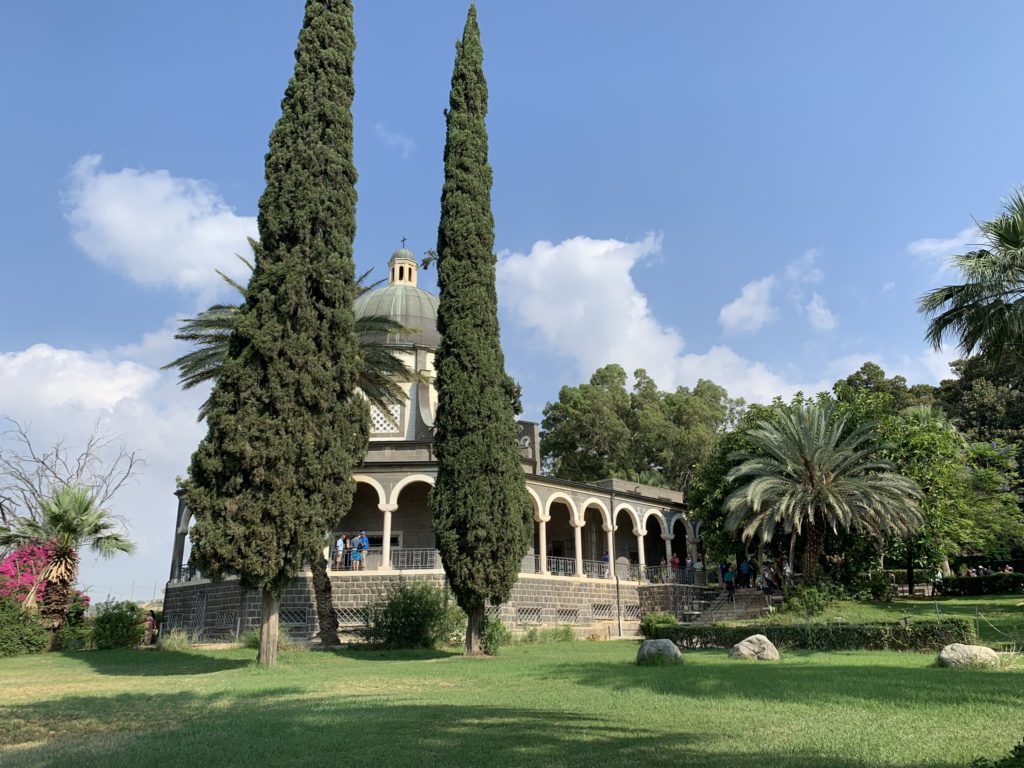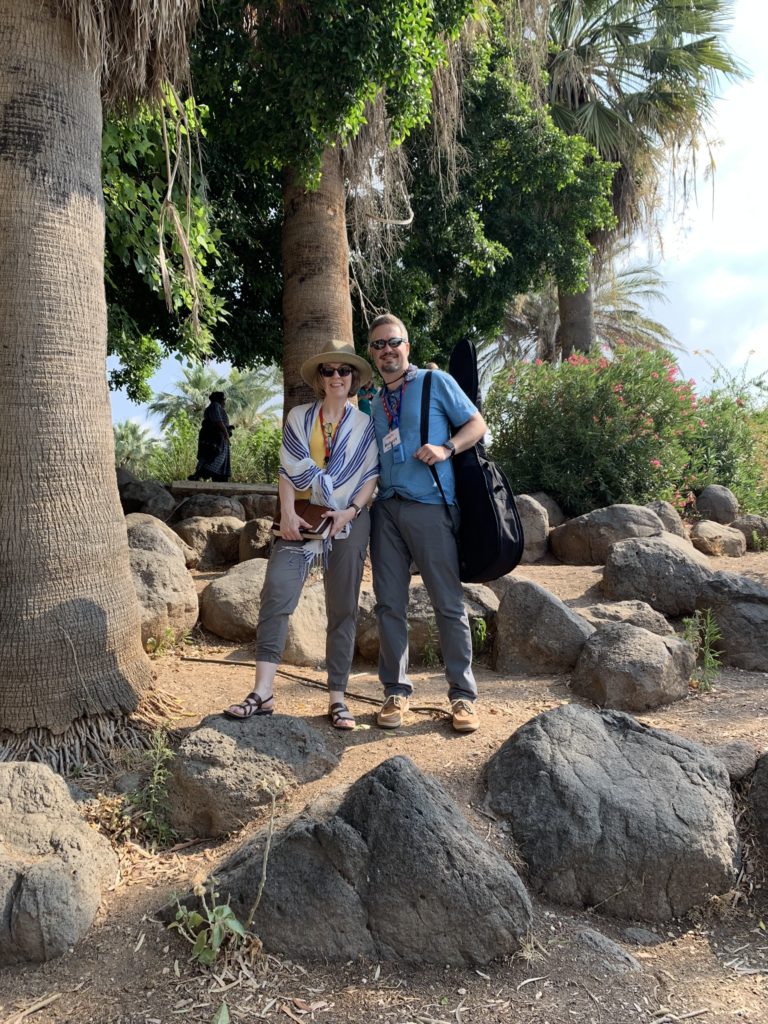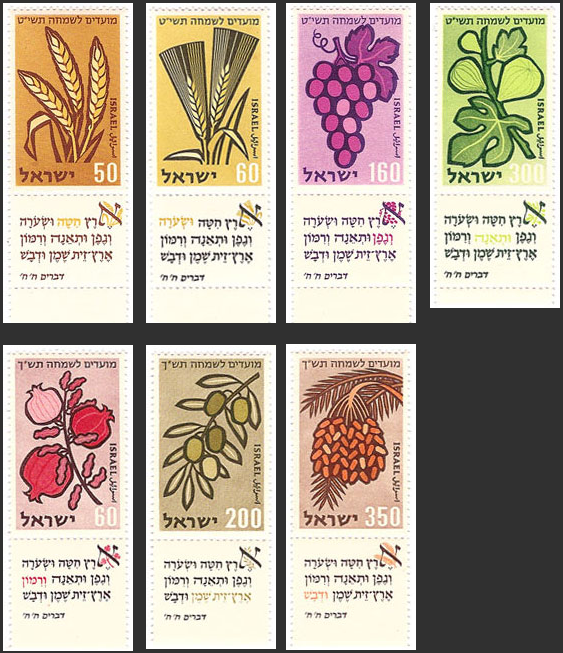“For the Lord is bringing you into a good land – a land with brooks, streams and deep springs gushing out into valleys and hills, a land with wheat and barley, vines and fig trees, pomegranates, olive oil and honey, a land where bread will not be scarce and you will lack nothing, a land where rocks are iron and you can dig copper out of the hills.” (Deuteronomy 8:7-9 NIV)

We were perched atop the Mountain of Beatitudes when our guide read this verse. We’d been in Israel long enough to recognize the seven fruits and grains from our morning and evening table offerings. These seven foods are featured in Israeli buffets: wheat and barley, grapes, figs, pomegranates, oil and honey are all prominent parts of the Jewish diet.

Further research ties spiritual significance to these foods. While we discover their historic Jewish meaning, keep in mind that seven is God’s number for wholeness.

Wheat represents chesed or kindness. As wheat is broken in order to sustain life in others, kindness is nourishing and a staple in our day to day interactions.
Barley represents gevura or restraint. The barley seed in contained in a strong hull, intact even after threshing. Self control is an essential personal discipline and a building block in a healthy society.
Grapes represent tiferet or beauty. It’s been said that tiferet is the perfect balance between kindness and restraint. Nutritionally, grapes both nourish and eliminate. Beauty nurtures the soul and pushes people toward sanctification at the same time.
Figs represent netzach or endurance. Figs trees are extremely hardy – thus the wonderment in Jesus’ fig tree curse and immediate death. Figs also take a full season to develop – three months to mature. Endurance is essential for believers to finish strong.
Pomegranates represent hod, or glory/majesty. Pomegranates wear a crown and contain many seeds, likened to the many Jewish laws that pave a path of life. Pomegranates provide many nutritional benefits and perhaps remind us that we were created in the image of God; obeying His Word restores that image.
Olives represent yesod or foundation. Olives were and still are central to Israeli livelihood, a building block in their food systems. The oil and fruit are used prolifically in cooking and daily health. Believers require a strong foundation of faith to sustain daily life.
Dates represent malchut or Kingdom. Dates fall from palm trees, which have no waste; every part of the palm is used for worship, work or nourishment. The Kingdom can permeate life in the same manner, no part of the human experience is wasted.
The idea was that these seven foods would promote wholeness and ever-deepening relationship with the Creator-Sustainer. The Land of Seven Kind represented a fellowship with God that the Israelites had yet to experience.
“When you have eaten and are satisfied, praise the Lord your God for the good land He has given you.” (Deuteronomy 8:10 NIV)
God gave the Israelites a beautiful description of the Promised Land. It was a well-watered place, abundant in food and resource alike. We read of their inheritance and our thoughts are tugged toward heaven. Every day, we inch a bit closer. I don’t know about you, but I’m ready to praise Him now because so I’m sure of His invitation to this place of eternal provision. I want to borrow a bit today from the promise of tomorrow. I long to let the hope of heaven blow through my soul and strengthen me forward in the sanctification process.
Lord, we look in Your Word and find Your perfect plan. It is amazing how much meaning You have packed into every sentence. Please grow our hearts toward heaven, sustain us with Your promise as You did the Israelites in the desert. We believe Your Word. Give us the strength to keep growing forward with You. Amen.